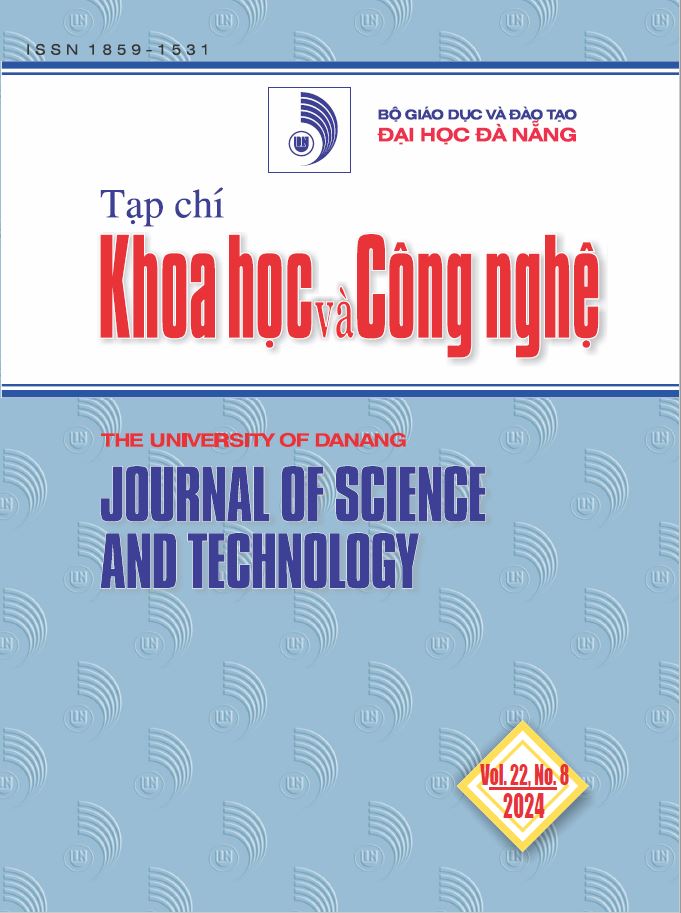Ảnh hưởng của niềm tin tôn giáo đến mức độ thực hiện trách nhiệm xã hội của doanh nghiệp
 Tóm tắt: 448
Tóm tắt: 448
 |
|  PDF: 308
PDF: 308 
##plugins.themes.academic_pro.article.main##
Author
-
Hồ Thị Hải LyTrường Đại học Kinh tế - Đại học Đà Nẵng, Việt Nam
Từ khóa:
Tóm tắt
Nghiên cứu này kiểm định tác động của niềm tin tôn giáo đến việc thực hiện trách nhiệm xã hội của doanh nghiệp sử dụng mô hình hồi quy trên bộ dữ liệu bao gồm 5.104 công ty tại 31 quốc gia trong giai đoạn 2002 đến 2018. Kết quả phân tích cho thấy, những công ty hoạt động ở các quốc gia có niềm tin tôn giáo cao có mức độ thực hiện trách nhiệm xã hội cao hơn. Tuy nhiên, mối quan hệ thuận chiều này sẽ bị suy yếu đi ở các công ty có vấn đề về hạn chế tài chính. Kết quả vẫn không thay đổi khi sử dụng đo lường khác của biến phụ thuộc và sử dụng mô hình khác thay thế. Nghiên cứu này làm phong phú thêm tài liệu về thực hiện trách nhiệm xã hội, đồng thời ủng hộ quan điểm rằng niềm tin tôn giáo thúc đẩy công ty trở nên có đạo đức hơn, ngại rủi ro hơn và ít có xu hướng lợi dụng các bên liên quan vì lợi ích cá nhân hơn.
Tài liệu tham khảo
-
[1] Griffin, O. Guedhami, K. Li, and G. Lu, “National culture and the value implications of corporate environmental and social performance”, Journal of Corporate Finance, vol. 71, pp. 102123, 2021.
[2] Liang and L. Renneboog, “On the foundations of corporate social responsibility”, The Journal of Finance, vol. 72, no. 2, pp. 853-910, 2017.
[3] Gavana, P. Gottardo, and A.M. Moisello, “The effect of equity and bond issues on sustainability disclosure. Family vs non-family Italian firms”, Social Responsibility Journal, vol. 13, no. 1, pp. 126-142, 2017.
[4] Di Giuli and L. Kostovetsky, “Are red or blue companies more likely to go green? Politics and corporate social responsibility”, Journal of Financial Economics, vol. 111, no. 1, pp. 158-180, 2014.
[5] Amor-Esteban, I. M. García-Sánchez, and M. P. Galindo-Villardón, “Analysing the effect of legal system on corporate social responsibility (CSR) at the country level, from a multivariate perspective”. Social Indicators Research, vol. 140, pp. 435-452, 2018.
[6] Jain and D. Jamali, “Looking inside the black box: The effect of corporate governance on corporate social responsibility”. Corporate Governance: An International Review, vol. 24, no. 3, pp. 253–273, 2016.
[7] J. Barro and R. M. McCleary, “Religion and economic growth across countries”. American Sociological Review, vol. 68, no. 5, pp. 760–781, 2003.
[8] R. Peterson, “Think pieces, religion as orienting worldview”, Zygon, vol. 36, no. 1, pp. 5–19, 2001.
[9] W. Lipford and R. D. Tollison, “Religious participation and income”, Journal of Economic Behavior & Organization, vol. 51, no. 2, pp. 249–260, 2003.
[10] J. Barro, “Determinants of democracy”, Journal of Political Economy, vol. 107, no. 6, pp. 158–183, 1999.
[11] W. Clark and L. E. Dawson, “Personal religiousness and ethical judgments: An empirical analysis”, Journal of Business Ethics, vol. 15, no. 3, pp. 359–372, 1996.
[12] R. Agle and H. J. Van Buren, “God and mammon: The modern relationship”, Business Ethics Quarterly, vol. 9, no. 4, pp. 563–582, 1999.
[13] Albaum and R. A. Peterson, “Ethical attitudes of future business leaders: Do they vary by gender and religiosity?”, Business & Society, vol. 45, no. 3, pp. 300–321, 2006.
[14] Iannaccone, “Introduction to the economics of religion”, Journal of Economic Literature, vol. 36, pp. 1465–1496, 1998.
[15] Brammer, G. Williams, and J. Zinkin, “Religion and attitudes to corporate social responsibility in a large cross‐country sample”, Journal of Business Ethics, vol. 71, no. 3, pp. 229–243, 2007.
[16] Marques, “Consciousness at work: A review of some important values, discussed from a Buddhist perspective”, Journal of Business Ethics, vol. 105, no. 1, pp. 27–40, 2012.
[17] Hilary and K.W. Hui, “Does religion matter in corporate decision making in America?” Journal of Financial Economics, vol. 93, no. 3, pp. 455–473, 2009.
[18] D. Dyreng, W. J. Mayew, and C. D. Williams, “Religious social norms and corporate financial reporting”, Journal of Business Finance and Accounting, vol. 39, pp. 845–875, 2012.
[19] S. Miller, “Going to hell in Asia: The relationship between risk and religion in a cross cultural setting”, Review of Religious Research, vol. 42, no. 1, pp. 5–18, 2000.
[20] Zsolnai, “Sustainability and sufficiency: Economic development in a Buddhist perspective”, Akademiai Kiado, Budapest: Society and Economy, 2008.
[21] Tomalin, “Biodivinity and biodiversity: The limits to religious environmentalism”, Farnham: Ashgate, 2009.
[22] Du, W. Jian, Y. Du, W. Feng, and Q. Zeng, “Religion, the nature of ultimate owner, and corporate philanthropic giving: Evidence from China”, Journal of Business Ethics, vol. 123, no. 2, pp. 235–256, 2014.
[23] K. Leong and Y. C. Yang, “Constraints on “doing good”: Financial constraints and corporate social responsibility”, Finance Research Letters, vol 40, pp. 101694, 2021.
[24] Chen, H. H. Huang, G. J. Lobo, and C. Wang, “Religiosity and the cost of debt”, Journal of Banking & Finance, vol 70, pp. 70-85, 2016.
[25] W. Ali, J. Frynas, and Z. Mahmood, “Determinants of corporate social responsibility (CSR) disclosure in developed and developing countries: A literature review”, Corporate Social Responsibility and Environmental Management, vol. 24, no. 3, pp. 273–294, 2017.
[26] Su, “Does religion benefit corporate social responsibility (CSR)? Evidence from China”, Corporate Social Responsibility and Environmental Management, vol. 26, no. 6, pp. 1206-1221, 2019.
[27] L. Chih, H. H. Chih, and T. Y. Chen, “On the determinants of corporate social responsibility: International evidence on the financial industry”, Journal of Business Ethics, vol. 93, pp. 115-135, 2010.
[28] M. A. Petersen, “Estimating standard errors in finance panel data sets: Comparing approaches”, The Review of Financial Studies, vol 22, no. 1, pp. 435-480, 2008.



